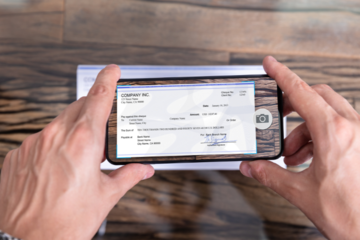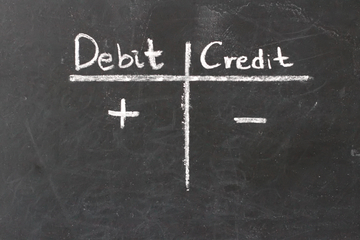The stakes are exceptionally high for companies when hiring new employees. According to CareerBuilder, nearly 27% of employers said a single bad hire cost the organization over $50,000. To prevent this scenario, employers may perform pre-employment background checks, including a credit history review.
What Is a Background Check?
If you're applying for a job, the employer may require you to pass a background check as a condition of employment. While some employers conduct background checks on potential job candidates, others perform checks after hiring. Background checks are an essential part of the hiring process, ensuring potential employees and applicants undergo a thorough screening to verify their qualifications, criminal history, and overall suitability for the position. It often verifies the information you've provided, including work history, experience, education, criminal history, etc. When running background checks, employers must adhere to the Fair Credit Reporting Act (FCRA) — a law that governs the use and production of consumer reports as a hiring tool.
What Does a Background Check Show?
There are several types of employment background checks, and every employer may have different criteria. Let's explore what shows up on an employment background check:
- Identify Verification. First, employers want to ensure you are who you say you are. By using the Social Security Administration and Department of Homeland Security records, a background check can show an employer whether your Social Security number is valid, if it belongs to you, and whether it has previously been used.
- Criminal Records. Criminal and arrest record searches are common elements of an employment background check. It can reveal patterns or histories of criminal convictions at federal, state, and county levels. Failure to perform criminal background due diligence could expose the company to lawsuits if the employee engages in wrongdoing.
- Previous Job Verification. This criterion can shed light on your career stability, loyalty to a company, and honesty. Make sure to be as honest and exact as possible when reporting employment history.
- Verification of Education. Education verification can ensure you have the level of education you state.
But does a background check include a credit check? It depends. Some employers request a copy of your credit report as a part of a pre-employment background check. The credit check used for employment purposes is a modified version of your credit report called an employment credit report.
Does Your Credit Score Show up on a Background Check?
The answer to the frequently asked question of "Do background checks show credit score?" is typically no. Because the background employment credit report is a modified version, your credit score usually does not appear. Even without your three-digit credit score the employment credit report on a background check can unveil valuable information:
- Provide a big-picture snapshot of how well you handle responsibilities.
- Verify your background, identity, and education.
- Reduce the likelihood of embezzlement or theft.
- Provide insight into your integrity, character, and conduct.
- Indicate your level of responsibility.
- Help determine if you're in financial distress.
These attributes can help dictate if you're a good fit for the company.
Not all employers will run an employment credit check as a part of their background process. One reason is the cost — employment credit checks are expensive and can take a lot of time. Simultaneously, it may not be necessary or pertinent to the nature of your job. Employers are more likely to run an employment credit check for money management and financial roles. Also, many federal agencies and jobs require an employment credit check to ensure you are trustworthy, reliable, and of good character and conduct. Even though employers may check your credit history, your credit score is typically out of bounds.
What Is a Credit Score?
If the employer runs an employment credit report as a part of their background check, the modified version will offer a comprehensive credit history — much like the information a lender would see, such as:
- Credit cards and open lines of credit
- Personal loans
- Student loans
- Auto loans
- Outstanding balances
- Missed or late payments
- Loan defaults
- Collections accounts
- Bankruptcies
- Foreclosures
However, when an employer runs a credit check for employment, they will not see your credit score. A credit score is three-digit a numerical value generated through the application of a mathematical algorithm to the data reported to the three credit reporting bureaus:
- Experian
- TransUnion
- Equifax
Your credit score serves as a quick and objective assessment of your creditworthiness. It's based on a scoring model that assists lenders in evaluating the probability of you repaying debt as agreed upon. Although there are various credit scoring models, one of the most widely utilized by lenders and businesses is the FICO® Score. According to Experian, your credit score is comprised of five differently-weighted factors:
- Payment history represents how well you pay your bills on time and accounts for 35% of your credit score.
- The amount of debt is the total debt available to you. Also called the credit utilization ratio, the amount of debt factor accounts for 30% of your score.
- Credit history length is the average age of your credit accounts and represents 15% of your credit score.
- The amount of new credit factor incorporates how many new accounts you've recently opened and the number of hard inquiries on your credit report. It accounts for about 10% of your score.
- Credit mix is the variety of types of credit you have. It accounts for about 10% of your score.
Is a Credit Score Important?
Your credit score is paramount and is one of the key pieces of information lenders use to evaluate your credit application. The credit score offers lenders an objective and fast measurement of the level of risk associated with lending money to you. This level of risk is related to the interest rate you'll pay. But it's not just lenders who use your credit score. Insurers use credit scores to establish premiums for homeowners and automotive coverage. Some landlords will use credit scores to determine who they will rent to. This three-digit number can even dictate who has to pay a larger deposit for utilities.
Who Can Access Your Credit Report or Score?
Credit bureaus allow credit report inquiries as long as the entity will use the information for qualified credit transactions, such as:
- Employment purposes,
- Issuing insurance or credit,
- Legitimate business needs, and
- Gauging eligibility for government benefits.
With your authorization, certain entities can access your credit report. These entities may include:
- Landlords
- Employers
- Creditors
- Lenders
- Insurance companies
- Utility providers
- Government agencies
If someone tries to access your credit report without a legal reason or permission, they can be subject to civil and criminal penalties.
Sources
- More Than Half of Companies in the Top Ten World Economies Have Been Affected By a Bad Hire, According to CareerBuilder Survey
- Employer Background Checks and Your Rights | Consumer Advice
- The Social Security Number Verification Service
- Employment Credit Report | TransUnion
- Background Checks and Security Clearances for Federal Jobs • Go Government
- Learn about your credit report and how to get a copy | USAGov
- What is a FICO® Score? - Experian
- What’s the Most Important Factor of Your Credit Score? - Experian
- Who may request my credit report? | Consumer Financial Protection Bureau



